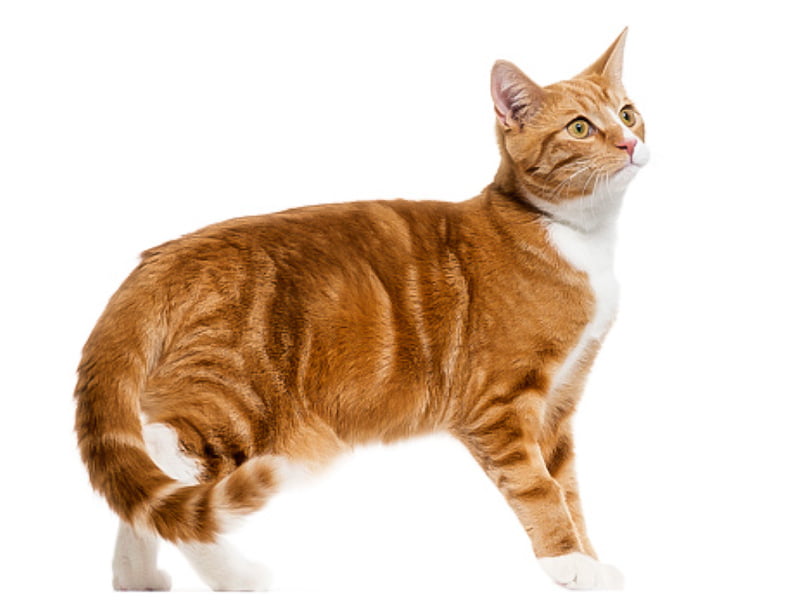Sometimes people do stereotype domestic cats based on the colour of their coats. Although this is a philosophical question there might be practical consequences. Three coat types come to mind immediately: black, ginger and tortoiseshell. We associate black with sinister behaviour and superstitions; ginger cats are stereotyped as of good character and tortoiseshell cats are also stereotyped with an attitude problem labelled ‘catitude’. Probably other coat colours are also affected in a subtle way. What about white? Perhaps we see white cats as pure. And perhaps we see certain striking cat coats as exotic and therefore believe the cat is exotic and exciting. It appears to be human prejudice reflected in the appearance of our cats.
Please note that these are entirely my ideas. I’ve not looked up information about this and therefore I might be wrong. If you have your own ideas then please tell me in a comment. It will be appreciated.
Two office cats: one ginger and one tortoiseshell
An employee at an office,’ Pam'(not her real name), blamed another worker for stereotyping a ginger office tabby cat. She works in an office where there are two office cats, one is a tortoiseshell (Jean) and the other is a ginger tabby (Jorts).

It’s claimed that Jean is smart and Jorts is intellectually challenged to use woke language. In old language he has been branded thick by another employee (who I’ve called ‘Jack’) who works in the office. Both Pam and Jack are volunteers looking after the two office cats.
Jack said on the Reddit.com website that Jorts has difficulty with day-to-day things. For example, the cats are fed in a closet and Jorts keeps pushing the door closed.
This prevents access to the food and sometimes Jean is locked inside the closet. Jack said that Jean is a good door opener but if she’s trapped inside the closet it doesn’t help.
As a consequence, she put down a doorstop. In response Pam said that she had deprived Jorts of the “chance to learn”. So, Pam tried to teach Jorts to go through the door. Jack was amused and stated: “you can’t expect Jean’s tortoiseshell smarts from orange cat Jorts”.
This annoyed Pam. In fact, she cried over it and then sent an email to the volunteers who were looking after the cats. In the email she said that Jack was “perpetuating ethnic stereotypes by saying orange cats are dumb”. Pam obviously believes that you can stereotype a domestic cat as stupid because of the colour of their coat.
Stereotyping for colour?
I’ve decided that you can stereotype a domestic cat because of their coat type and colour. On the face of it, it is no different to stereotyping a person except with one big difference: the whole thing goes over the head of the cat. They are completely out of it as this is a human concept and it concerns human behaviour only as far as we know. I wonder if primates such as the apes stereotype each other unjustifiably? It’s a possibility. But it certainly doesn’t apply to the world of cats to the best of my knowledge.
If you stereotype a cat because of the coat colour there may actually be serious consequences. Often there are. Take, for example black cats which are often not adopted at shelters because of their colour.
As it happens, anecdotally ginger cats are seen as cats of good character and well-balanced (see the link above). They are leadership potential 😊. It’s not science and I might be accused of stereotyping ginger cats but this time at the opposite end of the spectrum; I’m praising them rather than insulting them by saying that they are dumb.
Cat personality linked to coat colour? Yes, but work in progress.
Jack went to HR to discuss the matter which seems a bit far-fetched but these are a couple of office cats interacting with employees and therefore their roles are quite important. It’s the first time, though, that I have read about an employee discussing office cats with human resources.


Clearly, looking after working cats in the office can present some problems. They can be a source of discussion or argument. They might cause work colleagues to fall out. If Pam is putting margarine of Jorts as described she is not a clear thinker.
That said, I see nothing but praise for working cats in offices. They improve the office environment and make employees more productive. That, too, is I believe anecdotal but is good enough for me. I love to see office cats because it’s a win-win.

